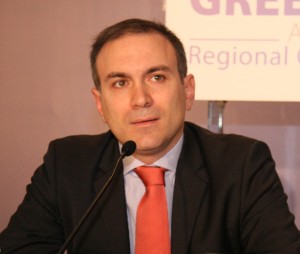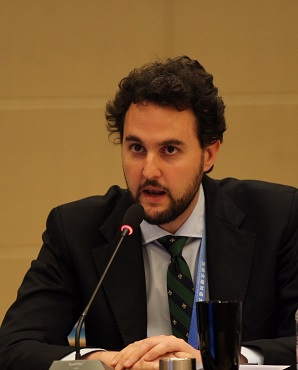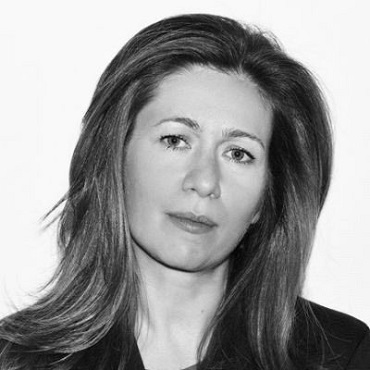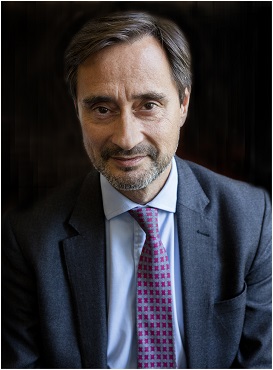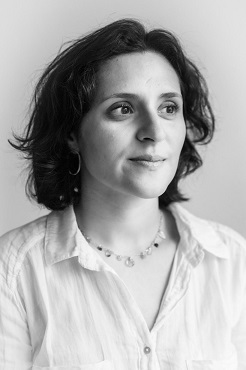The Butterfly Effect: Entangled Geopolitics
Anna Kynthia Bousdoukou
Just hours after the first round of the US Presidential Debate, the SNF Dialogues met live at snfdialogues.org to discuss new global geopolitical balances and evolving international relations.
The discussion featured Dr. George Tzogopoulos, Senior Fellow at the Begin-Sadat Centre for Strategic Studies and ELIAMEP, Director of EU-China Programmes at the Centre international de formation européenne (CIFE), and Lecturer in International Relations at the Democritus University of Thrace; Constantinos Filis, Executive Director of the Institute of International Relations; Brady Kiesling, author and former US diplomat and Katerina Sokou, journalist and Non-resident Senior Fellow at the Atlantic Council.
In their commentary, among a wide range of topics, the speakers touched on a shifting system of international relationships, how what happens in the voting booth in the US can affect its ground rules, and the roles of the European Union, the Turkey within it.
While addressing global geopolitical changes, Constantinos Filis, said: “Globally, the world is more volatile than it has been in decades. Geopolitical shifts are taking place, and what is extremely unpleasant for Greece is the dismantling of the international legal system, as a result of which a great deal of emphasis is placed on foreign exchange diplomacy and the countries that practice it. A great example is President Trump, who does not believe that the US-EU front should remain unbroken, something that revisionist powers such as China, Russia, and Turkey are trying to exploit.”
Konstantinos Filis on Trupm Phenomenon
On US domestic affairs, George Tzogopoulos commented that “Democrats have fallen into the trap of analyzing domestic affairs in the United States solely in relation to what President Trump is doing, rather than developing their own agenda that can inspire American citizens. Whether we agree or disagree with it, the US President is doing what he had said he would do before the November 2016 elections, when the American people voted for him.”
George Tzogopoulos on the US Democratic Party
While discussing the United States’ role in the international system, Brady Kiesling said that “after World War II, the United States acted as the main legislator of a new international community. It is now abundantly clear that Donald Trump is bored, and does not have the patience for an international system that is so painfully slow. He tried to replace this stage with something that features bilateral forces and balances at its core. We are seeing, however, that the results are not so good. The question is: How can we return to something more stable that helps Greece and other smaller countries? A Biden win will not significantly change US policy in the Mediterranean, since it is mainly experts and diplomats who are involved in this region.”
Brady Kiesling on American Political Scene
Katerina Sokou, who participated in the discussion live from Washington, D.C., asserted: “Trump’s decision to choose bilateral cooperation does not work, and it creates problems with traditional US allies, something that is emphasized by Joe Biden who, if elected, will try to return to multilateral diplomacy and international treaties. As Nicholas Burns said: If President Trump is re-elected, we will not be able to recognize the United States within four years.”
Katerina Sokou on 2020 US Elections
Robin Niblett, Director of Chatham House, the Royal Institute of International Affairs, gave a video interview that was aired as part of the webcast. He spoke, among other things, about the geopolitical power of Europe, mentioning that "the EU was transformed from a free trade area into a ‘Community’ before it even became a community. They call themselves a ‘Union,’ even though they were still only a community. And, now, the EU calls itself a ‘geopolitical actor,’ while it only has just begun to emerge as a geo-economic actor. I find it difficult to see how the EU can function by geopolitical criteria, especially since foreign policy remains an intergovernmental activity. Europe can become a geopolitical power, based on an alliance of willing parties, and not limited by the EU.”
Tara Varma, Head of Office and Policy Fellow at the European Council on Foreign Relations, also gave an interview for the Dialogues webcast, in which she said, “We know that Europeans need to build a new relationship with Turkey and Erdogan. We rely on them on the issue of immigration, but, on the other hand, they somewhat use this as blackmail against us, and the Europeans should think about what kind of relationship they want with Turkey. I don’t think we have the luxury not to have this conversation.”
Interview with Robin Niblett
Interview with Tara Varma
Speakers' Highlights
In Brief
Promo Video
The SNF Dialogues are curated and moderated by Anna-Kynthia Bousdoukou and are held through the journalism non-profit organization iMEdD (incubator for Media Education and Development).
*The opinions expressed by Dialogues participants, whether officially representing institutions and organizations or themselves alone, at events, in articles, or in other audiovisual media are solely their own and do not necessarily represent the views of the Stavros Niarchos Foundation (SNF) or iMEdD. Speakers' remarks are made freely, without prior guidance or intervention from the team.


